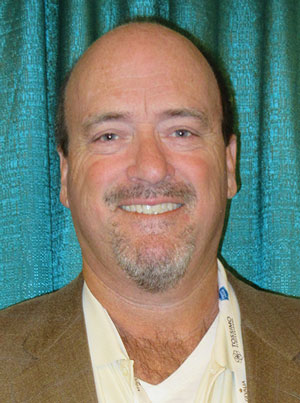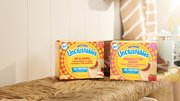Blog
Coffee Passes Its Physical And It Doesnt Stunt Your Growth
October 21, 2015 | Kevin Daw
TAGS: Vending Times columnist, vending, office coffee service, OCS editorial, coffee industry, coffee market, coffee roasting, Heritage Coffee, Kevin Daw, coffee studies, news about coffee, healthy studies |
Having grown up in the coffee business, I was made aware of just about every health study on coffee that has been published, whether it reported positive or negative effects on health. For example, a very negative study on decaffeinated coffee in the '70s actually made my dad pretty nervous as he considered the effects one bad study on regular brew would have on the business.
Back in those days, there were very few news outlets so the story needed to seem fairly significant in order to make it into the paper or the nightly newscasts. We paid attention to both.
Today, there seems to be no shortage of studies, nor of media vying to publish them. Therefore, it has been a great blessing for those whose livelihoods depend entirely on coffee that most of these studies have come out quite favorably.
With the amount of information available these days it could be argued a negative study would have to be even more alarming than in the pre-information technology age to cut through the clutter and make it onto our proverbial radar. It seems very odd that all the studies that came out during my youth seemed to be negative, while most all of the recent ones appear to have positive findings. It makes me wonder whether maybe one day it will turn out doughnuts also actually are good for us. One can dream ...
Let's take a look at the principal health issues that coffee can help us with, as a preventive measure if not a cure.
Heart Disease: In an in-depth review of 36 studies all revolving around cardiac problems, it was deduced that drinking three to five cups a day corresponds best with a reduction in risk. The sweet spot for correlating with low risk of heart failure was four cups per day.1
Stroke: The spread was a bit wider regarding the amount to consume daily for correspondence with least risk, with studies identifying consumption of two to six cups per day as correlating with lowest risk.2
Alzheimer's: A study published in the Journal of Alzheimer's Disease found that drinking at least three cups of coffee a day might delay the onset of this debilitating disease.3 Scientists from the University of South Florida and the University of Miami studied people aged 65 to 88 who had mild cognitive impairment (MCI). They found that 100% of patients who had high levels of caffeine in their blood (the equivalent of drinking several cups) did not develop full-blown Alzheimer's during the follow-up that lasted two to four years. This diminished as time went on, but is still a wonderful development, especially as so many are told to quit drinking coffee as they age.
Cancer: A Swedish study found that drinking two cups of coffee daily appears to reduce the risk of recurring breast cancer by half in patients who were also taking the cancer-fighting drug tamoxifen. Researchers believe that coffee activates tamoxifen and makes it more efficient.4
Researchers at Fred Hutchinson Cancer Research Center in Seattle found that men who drank at least four cups of coffee daily apparently lowered their risk of recurring prostate cancer by 59%.5
Another study found that consuming two cups of coffee a day seemed to lower the risk of liver cancer by 40%.6
A study published in Cancer Epidemiology, Biomarkers & Prevention, a journal of the American Association for Cancer Research, found that drinking four or more cups of coffee daily evidently reduces the risk of endometrial cancer by 25%.7
Diabetes: Drinking four or more cups of coffee a day may reduce your risk of developing Type 2 diabetes by 30%, says a study of 42,659 people published in the Journal of Clinical Nutrition.8 Regular or decaffeinated provided the same benefits, which researchers believe are due to antioxidants and magnesium found in coffee.
Another study involving more than 1.1 million people found that the more coffee people drank, the less likely they were to have diabetes.9
Liver: A couple of cups of coffee every day may cut the risk of risk of dying from cirrhosis of the liver by 66% in patients whose cirrhosis was caused by non-viral hepatitis, says a new study published in the journal Hepatology.10
Weight gain: An Australian study gave volunteers either coffee, decaffeinated coffee, or a caffeine tablet and then monitored them until lunch time for feelings of hunger and satiety. They found that those who drank regular coffee with breakfast felt less hungry than those who drank decaffeinated coffee or took caffeine tablets.11
That is an incredible list our beverage helps us fight against! I am surprised the specialty coffee craze hasn't been re-marketed as a health food craze.
In the end, coffee may not be a panacea for all our ills, but it is certainly a significant enough preventer of many big health issues we face that we should shout out its virtues from the rooftops every chance we get.
As always, may your cup run full, and the brew, exquisite.
--NOTES
1 Yuni Choi, Yoosoo Chang, Seungho Ryu, Juhee Cho, Sanjay Rampal, Yiyi Zhang, Jiin Ahn, Joao A C Lima, Hocheol Shin, Eliseo Guallar, "Coffee consumption and coronary artery calcium in young and middle-aged asymptomatic adults," Heart, May 1, 2015, Vol. 101, No. 9, 686-691.
2 Susanna C. Larsson and Nicola Orsini, "A dose-response meta-analysis of prospective studies," American Journal of Epidemiology, May 2011, Vol. 74, No. 9, 993-1001.
3 Chuanhai Cao, David A. Lowenstein, Xiaoyang Lin, Chi Zang, Li Wang, Ranjan Duara, Yougui Wu, Alessandra Giannini, Ge Bai, Jianfeng Cai, Maria Greig, Elizabeth Schofield, Raj Ashok, Brent Small, Huntington Potter and Gary W. Arendash, "High Blood Caffeine Levels in MCI Linked to Lack of Progression to Dementia," Journal of Alzheimer's Disease, 29, 2012, 1-14.
4 Ann Rosendahl, Helena Jernström et al., "Caffeine and Caffeic Acid Inhibit Growth and Modify Estrogen Receptor and Insulin-like Growth Factor I Receptor Levels in Human Breast Cancer," Clinical Cancer Research, April 15, 2015, Vol. 21, No. 8, 1877-1887.
5 Milan S. Geybels, Marian L. Neuhouser, Jonathan L. Wright, Marni Stott-Miller and Janet L. Stanford, "Coffee and tea consumption in relation to prostate cancer prognosis," Cancer Causes & Control, November 2013, Volume 24, Issue 11, pp 1947-1954.
6 Susanna C. Larsson and Alicja Wolk, "Coffee Consumption and Risk of Liver Cancer: A Meta-Analysis," Gastroenterology, Volume 132, Issue 5, May 2007, 1740--1745.
7 Youjin Je, Susan E. Hankinson, Shelley S. Towroger, Immaculata DeVivo and Edward Giovannuci, "A prospective cohort study of coffee consumption and risk of endometrial cancer over a 26-year follow-up," Cancer Epidemiology, Biomarkers & Prevention, December 2011, 20, 2487.
8 James A. Greenberg, Carol N. Boozer and Allan Geliebter, "Coffee, diabetes, and weight control," American Journal of Clinical Nutrition, Vol. 84 No. 4 682-693, October 2006.
9 Ming Ding, Shilpa N. Bhupathiraju, Mu Chen, Rob M. van Dam and Frank B. Hu, "Caffeinated and decaffeinated coffee consumption and risk of type 2 diabetes: a systematic review and a dose-response meta-analysis," Diabetes Care, February 2014, Vol. 37 No. 2, 569-586.
10 Wen-Xing Ding, "Drinking coffee burns hepatic fat by inducing lipophagy coupled with mitochondrial β-oxidation," Hepatology, April 2014, Volume 59, Issue 4, 1235--1238.
11 Matthew M Schubert, Gary Grant, Katy Horner, Neil King, Michael Leveritt, Surendran Sabapathy and Ben Desbrow, "Coffee for morning hunger pangs. An examination of coffee and caffeine on appetite, gastric emptying, and energy intake," Appetite, Dec. 2014, 83, 317-26
 KEVIN DAW is president of Heritage Coffee Co. (London, ON, Canada), a private-label roaster serving the breaktime management industries. A 30-year veteran of OCS, water delivery and vending operations, he has concentrated on coffee roasting for the past two decades.
KEVIN DAW is president of Heritage Coffee Co. (London, ON, Canada), a private-label roaster serving the breaktime management industries. A 30-year veteran of OCS, water delivery and vending operations, he has concentrated on coffee roasting for the past two decades.






